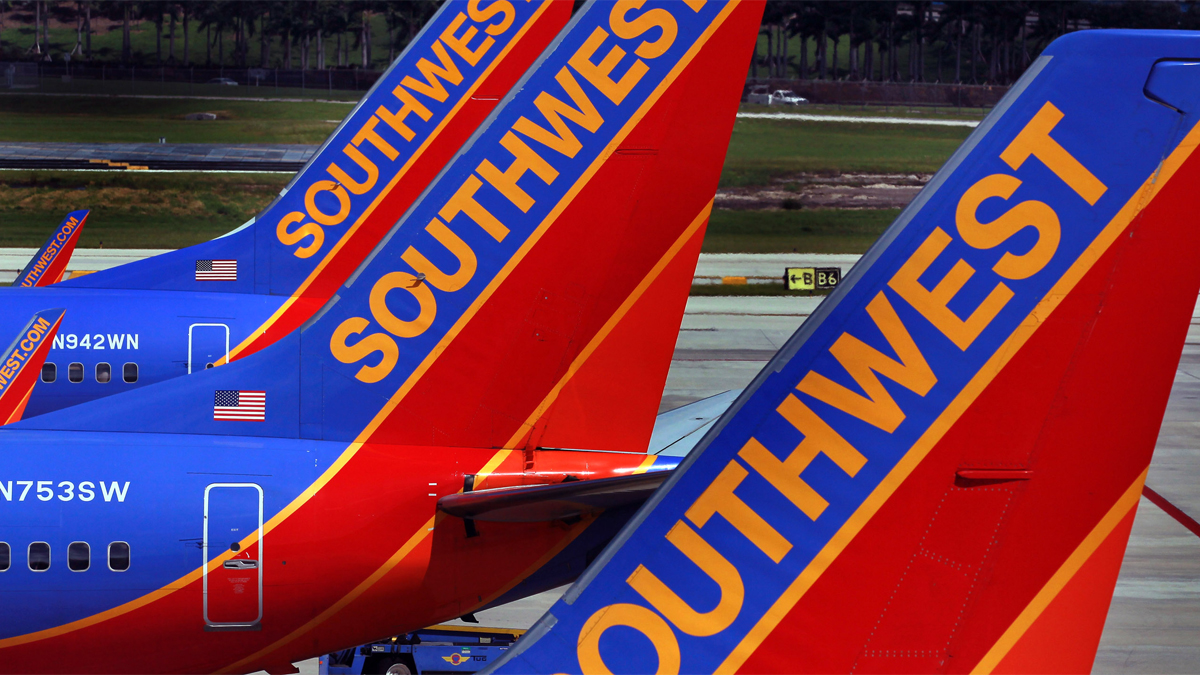Sunday was the snowiest February 1 Chicago has ever seen, and the storm dropped enough snow to rank it as the fifth largest snow event in city history, NBC Chicago Storm Team meteorologists said.
Between late Saturday and 6 a.m. Monday, 19.3 inches of snowfall was recorded at O'Hare International Airport, where the city's weather is officially recorded. There was 16.2 inches of snow on Sunday alone.
Midway International Airport, on the city's South Side, reported 19.2 inches. Highwood clocked in with 18.3 inches, and Elk Grove Village reported 18 inches. Peotone had 14.6 inches and the National Weather Service office in Romeoville reported 15.3 inches.
The 19.3 inches of snow recorded at O'Hare ranks the storm as the fifth largest snowfall Chicago has seen, beating a March 1930 storm by one-tenth of an inch.
The city's biggest blizzard happened in 1967 when 23 inches of snow fell on Jan. 26 to 27. The second-biggest blizzard happened in 1999 when 21.6 inches fell. The third-largest storm was in February 2011, when the weather service recorded 21.2 inches of snow and the fourth-biggest storm was in January 1979 when there was 20.3 inches of snow.
The storm, with its steady snowfall and gusty winds, dropped visibility to less than one-quarter of a mile. It caused a myriad of problems for those trying to get around, prompted some businesses and city attractions to close early on a Super Bowl Sunday, and forced Chicago Public Schools officials to cancel Monday classes.
"This level of snowfall will present many challenges for our children," CPS CEO Barbara Byrd-Bennett said a Sunday evening statement. "The safety and well-being of our students always comes first."
Local
The Chicago Transit Authority on Sunday evening rerouted buses that use Lake Shore Drive to nearby neighborhood streets. The main artery along Lake Michigan remained opened to all other drivers, however.
"The only issue we may or may not have with Lake Shore Drive today that we're watching is the wind," Streets and Sanitation Commissioner Charles Williams said during a midday Sunday press conference. "You have a strong wind coming off the lake. That could hit Lake Shore Drive with some flooding but we're watching it. Up to this point, it has not been a problem."
Williams said more than 350 pieces of snow-fighting equipment were out trying to maintain clearance on the city's main thoroughfares, including Lake Shore Drive.
Attention would turn to the city's side streets on Monday once the snow stopped falling, he said.
Aside from the roadways, Williams stressed the need for business and property owners to ensure walkways and sidewalks are cleared of snow as often and as quickly as possible. Volunteer shovelers may be available for those who can't do the work. The elderly and disabled residents can call 311 to see if a volunteer shoveler is available.
Dogs in the Snow
Mayor Rahm Emanuel said it was imperative that everyone be involved "to make sure the city that's on the move stays on the move."
Department of Buildings Commissioner Felicia Davis reminded landlords of the city's heat ordinance, which states that rental units must maintain a temperature of at least 68 degrees during the day and 66 degrees overnight.
"Landlords face fines of up to $500 per day per violation for each day that they do not supply adequate heat," Davis said. "The reason for lack of heat does not matter."
Davis said her office has already fielded 13 calls for no heat since Saturday.
The storm knocked out power to more than 15,000 ComEd customers by 10 a.m. A spokesperson told NBC Chicago that a bulk of the outages -- more than 14,000 of them -- were in areas south of Chicago. Joliet and Crestwood were municipalities with the largest number of outages. As of 4 p.m. Sunday, 14,000 people were still without power.
An additional 2,700 NIPSCO customers in Lake and Porter Counties were also without power as of 8:30 p.m. Sunday.
The Chicago Transit Authority's Chief Transit Safety Officer, Ralph McKinney, said the agency was operating on a standard Sunday schedule and would do so again Monday. Efforts were being taken, he said, to minimize the impact of the winter storm on riders.
He reminded that Bus Tracker and Train Tracker can help commuters minimize wait times, and that any alerts would be posted to the CTA's website and Twitter account.
At the airports, more than 1,300 flights were canceled at O'Hare International and more than 300 were canceled at Midway International by 3:30 p.m. For flights that were getting in and out, delays were averaging about 45 minutes at O'Hare and were minimal at Midway, according to the Department of Aviation.
The Illinois State Police issued a travel advisory beginning at 9 p.m. Saturday for Will, Grundy and Kendall counties due to the treacherous road conditions expected throughout the night and all day Sunday.
A crash involving a semi truck closed all lanes of Interstate 80 near southwest suburban Mokena Sunday morning. Lanes were reopened by 12:45 p.m.
Greyhound canceled all services in and out of Chicago Sunday for all of Sunday evening and night.
Amtrak canceled Monday train service between Chicago and Quincy, Ill., and the BNSF Railway temporarily closed a portion of its routes due to the severe winter weather conditions. The affected trains are Train 380, which is the Illinois Zephyr, and Train 381, the Carl Sandburg. No alternate transportation was available to and from Quincy or Macomb. Passengers were urged to check the status of the trains throughout the day.



